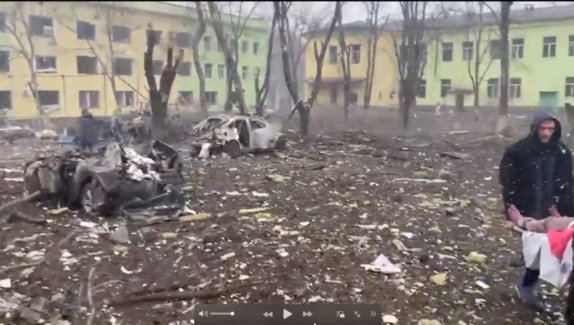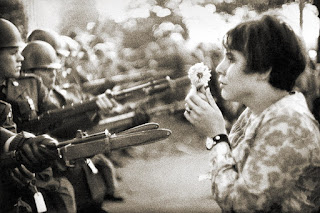 Posted by Keith Tidman
Posted by Keith TidmanIn describing the events of the Peloponnesian War, Thucydides wrote, “If [my history] be judged by those inquirers who desire an exact knowledge of the past as an aid to the interpretation of the future ... I shall be content.”
Yet is our knowledge of history really that ‘exact’? And can we apply what is learned, to shape wars still to be fought? Is there a prescriptive use of military history? That is, does the historical study of past wars increase the probability of victory in the next?
In spite of the optimism of Thucydides, the answer has to be no. And for an overarching reason: The complexity, indeterminacy, and dynamical nature of war. Conditions unfold in multiple directions; high-stakes choices are made to try pushing back against the specter of chaos; and overly idealised visions are applied to war’s unfolding—where ‘victory’ is writ large, to win both in battle and in the arena of political will. Of course, lessons of past wars may be useful within limits. Yet, in the words of military historian Trevor Dupuy, only to provide “basic insights”—tracing the contours of conduct and performance.
Variables pile up like grains of sand and are jostled as events advance and recede—unforeseeable incidents that the military theorist Carl von Clausewitz dubbed ‘friction’, which become magnified when war’s tempo spikes or acute danger looms. The instability of war makes it impossible to have confidence in victory, regardless of historical lessons. If the ultimate metric of war is wins, consider a few of America’s post-World War II crucibles: Korea, a stalemate; Vietnam, a loss; Iraq and Afghanistan (fifteen years later!) teetering precariously—constabulary skirmishes in Panama, Haiti, Somalia, Grenada, and Kosovo too minor to regard.
An example of failure has been counterinsurgencies. The last century has seen many efforts go awry. The history includes France in Algeria and Indochina, the Netherlands in Aceh, Britain in Malaya, the Soviet Union in Afghanistan, and the United States in Vietnam, Iraq, and Afghanistan. These were asymmetric conflicts—often fought, by insurgents’ intent, away from sweeping battlefields, and where insurgents at least instinctively understood military strategist Sun Tzu’s observation that “all warfare is based on deception”. Field manuals have provided military, political, informational, intelligence, and psychological tools by way of a counter—yet sustainable victory has often proven elusive.
Some philosophers of history, such as Arthur Danto, have shed light on the whys and wherefores for this disconnect. History does not merely deal with isolated events, but with great intersections—and how they play off one another. These intersections result in major changes, making it numbingly hard to figure out what will emerge. It is even more complicated with war, where one seeks to translate intersections that have played into past wars into reliable prescriptions for managing future wars.
Further, a blizzard of events does not yield dependable means to assess information about what was going on and to convert conclusions into sound, high-probability prescriptions for the next time. Even with hi-tech battlegrounds and mathematical simulations, a little historical information is not always better than none. A tipping point must be reached before information is good enough and plentiful enough. The reason is war’s nonlinear and dynamic nature. To this point, Arnold Toynbee was right to assert that history progresses in nonlinear fashion. In the eyes of those caught up in war’s mangle, therefore, events often play out as chaos, which military planners cannot compensate for. It has been called the ‘fog of war’.
Minor events, too, may lead to major events. Chaos theory has shown that events associated with dynamic, nonlinear systems—war among them—are extraordinarily sensitive to initial conditions. The sheer multiplicity of, and interactions among, the initial conditions make it impossible to predict most outcomes. Efforts by decision-makers run into head winds, as conditions degrade. Errors cascade. The many variables are just the starting point of war, subject to change dramatically as war persists. The ‘butterfly effect’, as dubbed by Edward Lorenz, where the metaphorical flapping of a butterfly’s wings (initial conditions) can cause extreme weather far elsewhere.
Too many to list here, the initial conditions of war include the prospect of third-party intervention, risk of battle fatigue, unexpected coupling of variables, cost-benefit bargains, resilience to setbacks, flexibility of tactics, match between force mix and mission, weaker party’s offsets to the other’s strengths, inspirational leadership, weight placed on presumed relative importance of factors—and numerous others. And as Aristotle observed, “the least deviation . . . is multiplied later a thousandfold.”
The thread linking the outcome of future wars to lessons from history is thin, and errors have come with high costs—in blood, treasure, and ethical norms. ‘Wisdom’ gleaned from the past bumps up against wars’ capacity to create disequilibrium. Much might be learned descriptively from past wars, but the prescriptive value of those lessons is tenuous.




